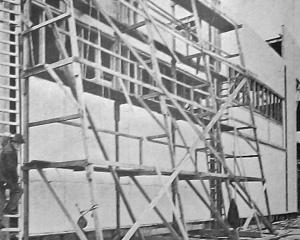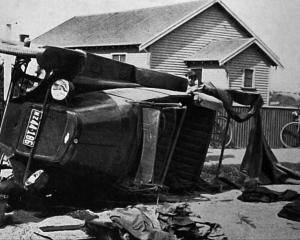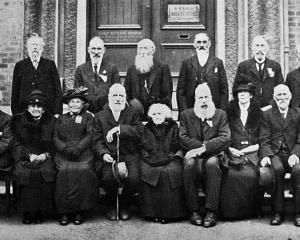
The clerk of the Presbytery of Southland forwarded a resolution originally drawn up by three Christian bodies in Queenstown — Presbyterian, Anglican, and Salvation Army — and read by their ministers on Easter Sunday: "That the action of all concerned in completing the programme of the Queenstown regatta on the morning of the Lord’s Day demands this expression of our sense of shame that so great a sin against God and offence against the community should have been committed in our midst, a wrong-doing from which those who have a Christian conscience cannot too carefully dissociate themselves."

Mr Kilpatrick said that the circumstances were that a regatta was held annually at Easter at Queenstown. For some reason the regatta could not be completed on Saturday this year, and it was decided to conclude it on Sunday morning. It certainly was more than a pity that any organised sports body should so far forget itself as to cause that to occur on the Lord’s Day. He moved that the matter be received and that the Presbytery express its regret that any organised body should have carried out any part of its programme on the Lord’s Day. The Rev W.F. Evans said that a wider question was raised, because Queenstown was a holiday resort and a great number of their people went there on holiday and were drawn into this kind of thing.
Burnside aqueduct blamed
The failure of the railway flume at Burnside caused the flood water from the Concord catchment of the Kaikorai Valley system to pour into Caversham through the new railway tunnel. This catchment is between 500 and 400 acres in extent — mostly high ground — and would furnish enough water to cause a flood on the Flat without any local rain. The rainfall on the high ground, as carefully registered from time to time, during the worst 24 hours of the flood, was 10.7 inches. The Forbury road conduit is designed to remove 2in in 24 hours. When, therefore, our own 10.7in, backed up by the railway tunnel flow, arrived at Forbury Corner inlet it passed over the inlet as if it did not exist, in spite of all efforts of the man on duty with the rake keeping the opening clear. Hence the Flat was flooded to an extent that one hopes will never occur again, not even in a hundred years.
Biosecurity
Foreign insects can be introduced in any manner of ways, per fruit, seeds, packing cases, ballast or almost in any old way, and often quite undetectably. Some of these immigrants will find very congenial conditions here, with few or no natural enemies to keep them in check.
Having landed in such an Eldorado for them they would proceed to increase amazingly to our national loss.
Apples for South America
Mr H. Turner informs us that the shipment of 1100 cases of Otago apples by the Pakeha arrived in excellent condition and realised an average price of 9 shillings 6 pence per case. The prices must be considered quite satisfactory in view of the fact that large shipments from other parts were landing in indifferent condition at the same time.
— ODT, 2.5.1923 (Compiled by Peter Dowden)












